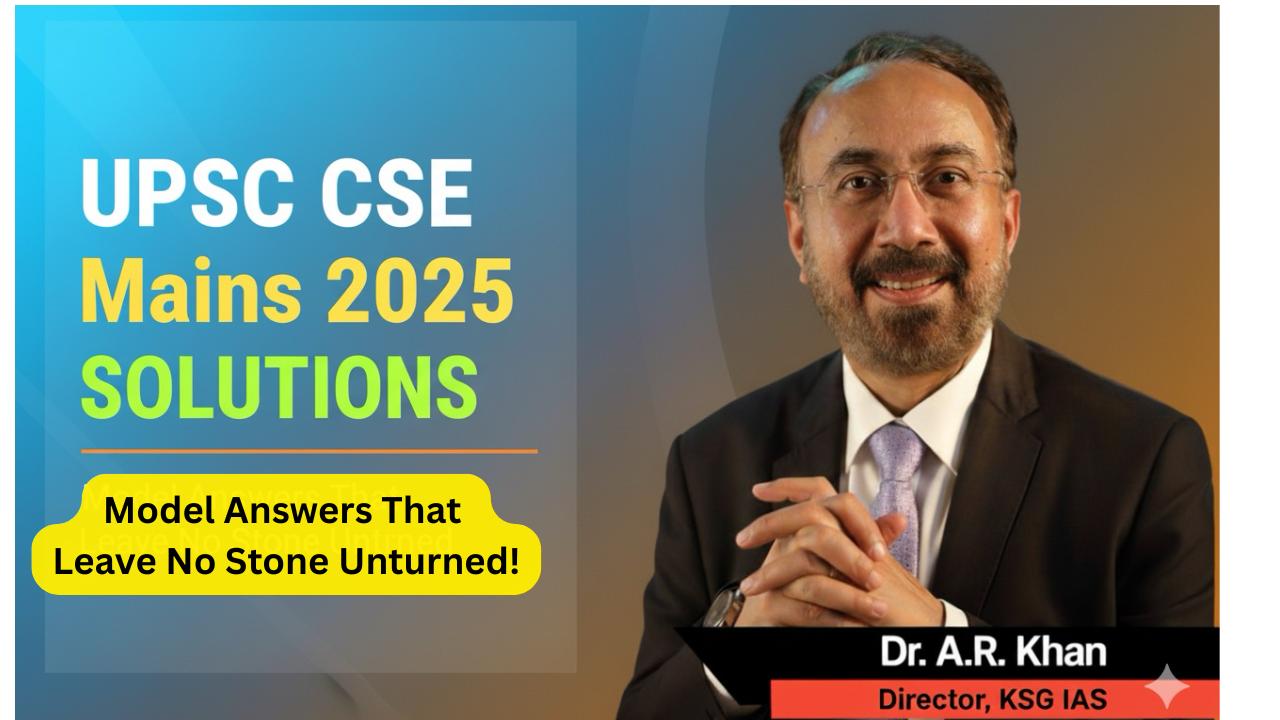3. Given below are three quotations of great thinkers. What do each of these quotations convey to you in the present context?
3(a). "Those who in trouble untroubled are, Will trouble trouble itself." – Thiruvalluvar (Answer in 150 words) 10
The verse by Thiruvalluvar emphasises poise and calmness in adversity—an ethical quality of composure when confronted with crises.
In today’s context:
- Emotional Intelligence: A calm mind enables rational decisions. During the 2018 Kerala floods, administrators who remained unflustered coordinated rescue, rehabilitation, and inter-state assistance effectively.
- Public Service Ethics: Civil servants often face political pressure, disasters, or communal tensions. An untroubled approach reduces bias and panic-driven errors. Officers like Sh. Ashok Khemka and Smt. Durga Shakti Nagpal are exemplifiers of this trait.
- Personal Resilience: COVID-19 frontline health workers exemplified this quality, managing chaos while inspiring confidence among the public.
- Leadership: Calm leaders prevent escalation. Mahatma Gandhi’s non-violent leadership during India’s freedom struggle demonstrated this virtue—his serenity disarmed hostility.
Philosophically, this reflects the Gita’s ideal of sthitaprajna (steady wisdom)—remaining balanced in success and failure.
Thus, the message is: challenges lose power over individuals who cultivate composure. Virtues like courage and fortitude can empower anybody to defeat any sort of trouble and emerge victorious.
3(b). "The greatest discovery of my generation is that a human being can alter his life by altering his attitudes." – William James (Answer in 150 words) 10
Attitude plays a pivotal role shaping one’s personality and trajectory of life. The one with Zen Focus (single minded and ego-less pursuit) possesses the power to transform any adversity into opportunity.
William James highlights the transformative role of attitude in shaping destiny. On a deeper introspection of the quote, it can be realised that such attitude not only shapes personal destiny, it also has the potential to transform the lives of several others.
The above can be understood by the following instances:
- Personal Ethics: A positive attitude fosters perseverance. For UPSC aspirants or administrators in remote postings, optimism drives consistent effort. Ms. Ira Singhal topped the UPSC CSE 2014 despite all the difficulties owing to her never say die attitude and unrelenting determination to fight setbacks. Case in point is Sh. APJ Abdul Kalam, whose perseverance gave him the ability to fight all obstacles and his positive attitude helped him rise to the position of President of India.
- Governance: Attitude change among officials can convert obstacles into opportunities. The Aspirational Districts Programme showed how proactive district collectors with problem-solving attitudes accelerated health and education indicators.
- Social Transformation: Society progresses when collective attitudes shift. The Swachh Bharat Mission succeeded because it reframed sanitation from stigma to dignity, changing behaviour across villages.
- Case Study: IAS Armstrong Pame in Manipur, called the “Miracle Man,” mobilised community efforts to build a 100-km road with minimal government funds—attitude overcame resource scarcity.
Ethically, this aligns with virtue ethics—attitudes shape character, which drives right action.
Thus, altering attitudes is not superficial; it creates sustainable transformation in personal, professional, and social spheres. For civil servants, cultivating an attitude of service, empathy, and innovation enables holistic governance. It is all about reinforcing positive attitude and compounding it in a manner that it produces transformative results.
3(c). Swami Vivekananda: “The strength of a society is not in its laws, but in the morality of its people.” (Answer in 150 words) 10
The given quote signifies that while laws provide an external framework for order, the true resilience and prosperity of a civilization depend on the internal ethical compass of its citizens.
Swami Vivekananda emphasised that true social strength lies in moral character, not just legal frameworks.
The two can be compared as below:
- Limitations of Laws: Despite strict anti-dowry or anti-corruption laws, practices persist due to weak morality. Laws without inner ethics lead to compliance only under fear.
- Social Morality: Societies prosper when values of honesty, compassion, and fraternity prevail. For example, the Civil Rights movements in USA in the 20th century (Martin Luther King Jr.) ensured that unjust racial discrimination is eliminated. The strength of the Civil Rights Movement ultimately lay not in its legal power but in the moral conviction of its participants.
- Constitutional Context: Article 51A (Fundamental Duties) encourages citizens to promote harmony, preserve heritage, and develop scientific temper. These duties embody Vivekananda’s vision—laws provide structure, morality provides substance.
- Good Governance: Civil servants relying solely on rules risk bureaucratic rigidity. Ethical judgement is crucial. E.g., during COVID-19 lockdown, officials allowed exceptions for migrant relief beyond rigid orders.
- Global Example: Nordic countries thrive not just on laws but high social trust and moral responsibility.
The real accomplishment for a country is attained when laws are followed not out of fear rather adherence to laws is imbibed based on honesty, morality, and truthfulness. When morality guides a country’s citizens, it can be confident of growth and progress.
Thus, a nation’s resilience rests on citizens’ morality. For India, nurturing ethics through education, civic engagement, and community participation will make laws effective, promoting a just society.

